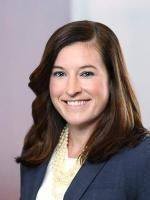The Fiscal Year 2015 budget for the Commonwealth of Massachusetts, which was signed into law earlier in the week, included a broad prohibition on clinical laboratory self-referrals. This legislation (the “Bill”) originally proposed by the Attorney General’s office was intended to combat self-referral arrangements between clinical laboratories and sober houses under common ownership, but it extends beyond such relationships to prohibit referrals between clinical laboratories and any person or company with a direct or indirect ownership interest in the laboratory and vice versa (with a number of notable exceptions).
The Bill amends several sections of the statutory provisions governing licensed clinical laboratories and also adds new sections. For example, new section M.G.L. ch. 111D § 8A prohibits the knowing referral, request, order, or sending of any specimen to a clinical laboratory in which the person or company, or any of its owners, directors, partners, employees, or family members thereof have a direct or indirect ownership interest. It also amends the section regarding prohibited activities (M.G.L. ch. 111D § 8) to include a new provision that explicitly prohibits a clinical laboratory from knowingly soliciting, accepting, or testing any specimen that is received from, ordered, requested, or referred by (1) a person or company in which the clinical laboratory or its directors, owners, partners, employees, or family members thereof have any direct or indirect ownership interest; or (2) any person or company or its directors, owners, partners, employees, or family members thereof having any direct or indirect ownership interest in the clinical laboratory.
Both of these provisions include exceptions for:
-
clinical laboratories owned by a licensed physician or group of licensed physicians that is used exclusively in connection with the diagnosis and treatment of the physician’s or group’s patients and where all testing is performed by or under the direct supervision of the physician or group;
-
a hospital or clinic licensed under applicable Massachusetts statutes used exclusively in connection with the diagnosis or treatment of the hospital’s or clinic’s own patients; or
-
any case meeting certain specified exceptions to the federal Stark Law (42 U.S.C. § 1395nn) or certain federal regulations.
The broad exception allowing physicians and physician groups to order from their own in-office laboratories without imposing any limitations is sure to disappoint advocates for strengthening the Stark Law, which is the federal prohibition on self-referral. For example, as noted in a previous post, the Alliance for Integrity in Medicare, a broad coalition of medical specialty, laboratory, radiation oncology, and medical imaging groups, has advocated for a federal statutory or regulatory change that would prevent physicians from self-referring certain services, such as anatomic pathology, that are not typically provided during the office visit when the service is ordered. According to the Congressional Budget Office, the Medicare program would save $3.4 billion in FY 2015 by excluding anatomic pathology, advanced diagnostic imaging, physical therapy services, and radiation therapy from the Stark Law’s in-office ancillary services exception. Even so, neither the Centers for Medicare & Medicaid Services nor Congress has taken action to prevent such self-referrals. Because the Commonwealth focused its efforts on self-referral between commonly owned sober homes and clinical laboratories, it likely did not consider the merits of a more stringent in-office laboratory exception.
The Bill also establishes new penalties for violating the above-discussed provisions. The Massachusetts Attorney General may bring a civil or criminal enforcement action and may recover a civil penalty of between $5,000 and $10,000 per violation, plus three times the amount of damages sustained, including consequential damages. Violators may also be liable to the Commonwealth for the expenses resulting from any civil action brought to recover penalties or damages.
In addition, a person or company that solicits, offers, or enters into a referral arrangement or scheme with a clinical laboratory that the person or company knows or should know has a principal purpose of assuring referrals by the person or company to a particular clinical laboratory, if the person or company directly made referrals to such clinical laboratory, would be in violation of the above-discussed provisions may face civil penalties of up to $100,000 for each referral arrangement or scheme plus three times the amount of damages sustained, including consequential damages.
Beyond new prohibitions and penalties, clinical laboratories are now required to disclose any ownership interests in writing to the Department of Public Health every two years. This disclosure must include the name and ownership interest of the disclosing person or company, as well as the names and all ownership interests of all other parties with an ownership interest in the clinical laboratory. A copy of the disclosure must be provided to the Attorney General’s Office. Failure to provide such a disclosure may result in fines of up to $5,000.
After Governor Patrick signed the budget into law, Massachusetts Attorney General Martha Coakley commented that “[c]losing [the] loophole [that previously allowed self-referral arrangements between clinical laboratories and sober houses under common ownership] means MassHealth will save millions of dollars each year….” AG Coakley added that such arrangements constituted “blatant fraud and abuse of our Medicaid system” and that “[t]his new law will help further ensure that [Massachusetts’] health care dollars will be spent on caring for those most in need.” The Massachusetts Attorney General estimates that this new law will save the MassHealth program (the Massachusetts Medicaid program) approximately $6.6 million and private insurers more than $18 million per year.





 />i
/>i

